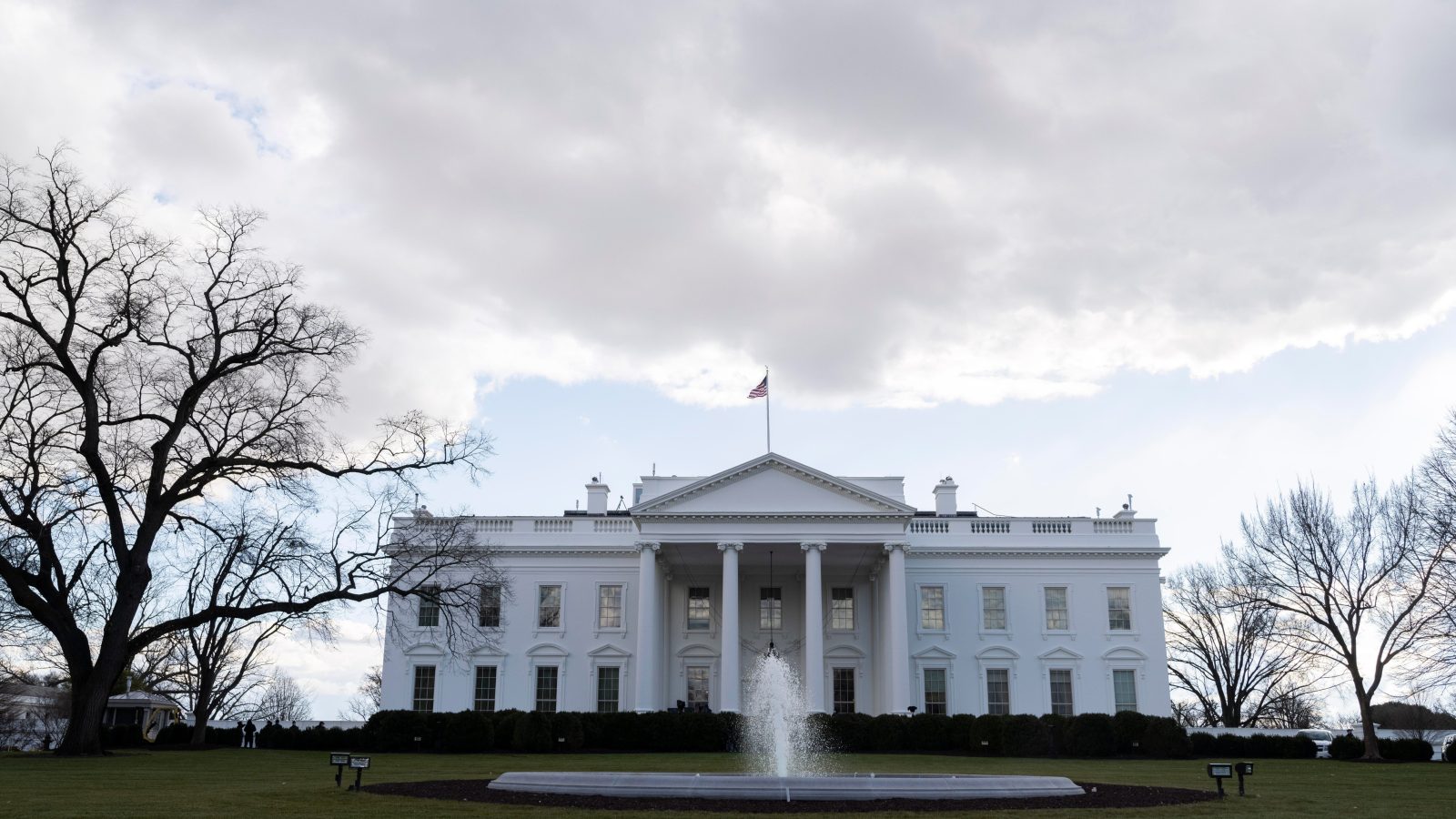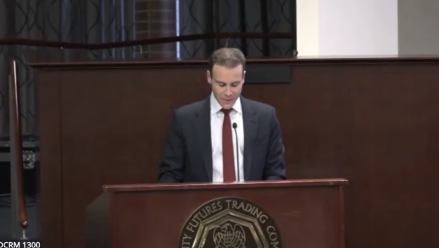The White House is considering alternatives to Kalshi director Brian Quintenz to be the next chair of the Commodity Futures Trading Commission (CFTC), now that Quintenz’s nomination for the post appears to have stalled.
Bloomberg reported Thursday that the White House is “weighing additional candidates” to chair the regulator that governs prediction markets like Kalshi, as well as the commodities industry.
That comes as Quintenz’s nomination still awaits a vote from the Senate Committee on Agriculture, Nutrition & Forestry. He was twice scheduled for a vote, but on both occasions his name was withdrawn at the last minute.
The second withdrawal came after the White House told the Committee not to hold the vote, reportedly due to pressure from the Winklevoss twins — the co-owners of crypto exchange Gemini and donors to President Trump’s campaign — who argued Quintenz’s direction for the CFTC was not consistent with the president’s agenda.
Earlier this month, Quintenz published screenshots of a conversation with Tyler Winklevoss, concerning a complaint against the CFTC made by Gemini.
More experience in crypto than event contracts
The two candidates cited by Bloomberg — Michael Selig, chief counsel to the Securities and Exchange Commission’s crypto task force, and Tyler Williams, counselor to Treasury Secretary Scott Bessent on digital asset policy — both have significant cryptocurrency experience.
However, their links to prediction markets are not as direct as those of Quintenz.
Quintenz first helped lay out a legal argument to allow prediction markets to offer sports event contracts in 2021, while he was a commissioner for the CFTC, when he wrote a dissenting opinion on a proposed rule to block Cboe’s ErisX from offering event contracts on sports.
Quintenz is currently a director and shareholder of Kalshi, though he has pledged to step down and divest his shares if he is ever confirmed. His links to the prediction market have raised conflict-of-interest questions, particularly due to emails in which his Chief of Staff Kevin Webb asked for information about outstanding applications to become a designated contract market, which may concern potential Kalshi rivals.
Between his dissenting opinion and his statements at a committee hearing in June, Quintenz has made it clear that he believes CFTC-registered exchanges should be allowed to offer a wide range of sports event contracts.
Signs Selig backs sports event contracts
Selig has been at the SEC since March, following three years at law firm Wilkie, Farr & Gallagher, where he focused on crypto-related issues. He has spoken out against regulators’ investigations into crypto companies, which was an area where the Winklevoss twins appeared to believe Quintenz was not fully aligned with the president.
Working at Willkie Farr & Gallagher, Selig worked with clients including crypto-focused investment firm Paradigm. Paradigm led Kalshi’s most recent funding round in June, when the prediction market raised $185 million at a $2 billion valuation.
His name appears on a letter from Paradigm to the CFTC arguing that event contracts on elections should be permitted.
73943AlexanderGrieve“The CFTC’s proposal to establish a prohibition on prediction markets will simply mean that the CFTC has no influence upon the global regulatory framework for these markets,” the letter says.
Though the letter concerns political event contracts, at various points it makes the case that sports event contracts should be allowed too.
“The CFTC’s characterization of political contests, awards contests, and sporting events as forms of ‘gaming’ is arbitrary and capricious,” it says. “The idea that the fact that the underlying asset involves a political contest, awards contest, or sporting event rather than the price of pork bellies makes it a ‘game’ is nonsensical.”
Williams wrote White House crypto report
Williams is credited as the main author of the White House’s “Strengthening American Leadership in Digital Financial Technology” report. It makes no direct mention of sports event contracts, and only a passing mention of event contracts at all.
However, it does allude to the potentially broad jurisdiction of the CFTC.
“The CEA defines ‘commodity’ broadly to include goods, services, articles, rights, and interests that are or could be the subject of futures contracts,” the report says. “When a digital asset meets the definition of a commodity, derivatives listed on that asset — including futures, options, and swaps — fall squarely within the CFTC’s jurisdiction.”
If he believes the definition of a commodity is also broad enough to include sporting events, then it would appear that he would see any contracts related to those sporting events as “squarely within the CFTC’s jurisdiction” too, and therefore not for states to regulate or ban.
Before joining the Trump administration, Williams worked at crypto investment firm Galaxy Digital.
New CFTC chair will have outsized influence
The CFTC chair would be able to launch reviews into contracts they believe to be “contrary to the public interest,” or could leave them be. Kalshi has argued in court that only the CFTC has jurisdiction to block sports event contracts, if it wishes to do so.
Whoever takes on the role will have an unusually large level of influence over the regulator, as they will be its only commissioner, at least initially.
Summer Mersinger and Christy Goldsmith Romero both left their roles as commissioners at the end of May, while previous Chair Rostin Behnam left in February.
Acting Chair Caroline Pham is the only commissioner in place at the moment, but she will leave when the new chair arrives.






